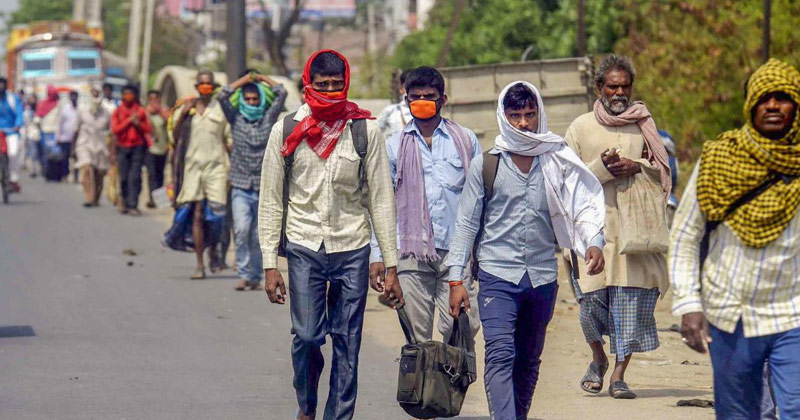Some say, it’s yet to hit peak levels here in India, others believe the worst is over or as they say, behind us. Regardless, it doesn’t require one to be on the seat of Nobel laureates to note the Coronavirus in India birthed countless problems, other than just posing a risk at human life.
There were incessant problems for migrants during the Coronavirus in India. The problems still continue as the world’s largest democracy is yet to win its battle against the deadly epidemic. The direct threat to the life of migrants who were desperately trying to flee urban centers like Delhi and Mumbai was the one big issue the Indian administrations weren’t able to control or help improve.
While from the vantage point, it wasn’t hard to see what were countless hurdles for organizations, businesses, individuals who fell foul of work-related issues, the unemployment being one of the greatest distressing factors, it was a common sight to run into constant images spiralling across the internet that showed many migrants enduring what seemed an endless walk back to their homes.

In some ways, it could be said, such an image was as heartbreaking as it was telling of how poorly did the political establishment fail in protecting those who are really vulnerable or on the marginal lines.
And now, as there’s a bit of a relief with the death counts portraying not such a scary picture, there are efforts to bring back the migrant workers to the very cities they were desperate to flee from.
In some ways, this reversal of tide, if one might call it that, is also plagued with problems.
Many industries, corporates, production centres or plants, Indian news reports suggest, are finding it tough to get migrant labours back. So much so, that this phenomenon has sort of become front page news headline in many an English daily in India.
Here’s what one of the noted news publications, focused on the state of the economy and trade had to say on the said matter:
Garment Exporters Association of Rajasthan — an organisation representing 300 manufacturers exporting clothing to Japan, the United States and Europe— said many have offered workers accommodation, insurance and a 20% raise, but to little avail.
It must be said, however, that the most blaring concern that the migrants in India face during these times marked with the COVID-19 epidemic is that same concern that forced them to abandon their only source of livelihood: the threat posed at life.
Yes, while individuals are improving, bettering and recovering on a whole, an epidemic, at the end of the day, is an epidemic, isn’t it?
Furthermore, here’s what Livemint had to say on the developing story:
Migrant labourers form the backbone of Asia’s third-biggest economy toiling in every sector from making consumer goods and stitching garments to driving cabs.
But when India went into lockdown in late March, vast numbers lost their jobs, prompting a huge heart-rending exodus back to their home villages, sometimes on foot, their children in their arms.
Some died on the way.
But to sum it up, it must be said that while sizzling townships, flourishing corporates, booming urban infrastructure and instances of sprawling architecture (whether attributed to Financial Institutions, Automobile giants, IT-enabled Services and whatnot) continue to weave the “Shining India” narrative, none of it would be possible without the sweat or toil of the labourers who dedicate nearly an entirety of a day toward constructing the India we know it to be. And this they do all throughout the year.
Suggested Read: How the Floods In Assam Took A Toll on the Well-Being of The Wildlife
Just imagine the fancy Indian dream and the economic behemoth that it’s often described as without the fighting force that enabled it have the shape with which it commands the world’s attention? Yet, it is a mystery what will happen to hundreds of thousands of labourers who may still wait before they return to cities struck by the Coronavirus epidemic. What’ll become of them minus jobs; what might have already become of their existential plight as much of the modern urban India tweets and puts hashtags often reading #savemigrants from the plush four-walled comfort as it sips expensive brews and operates posh electronic gadgets!


